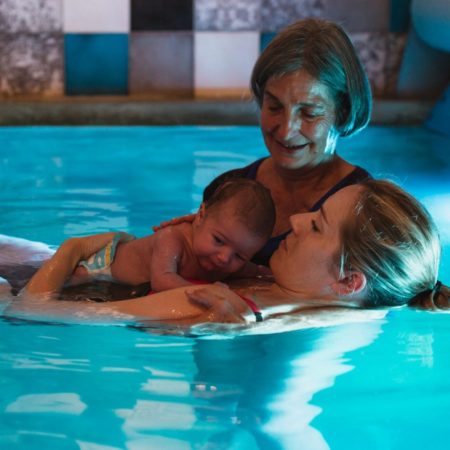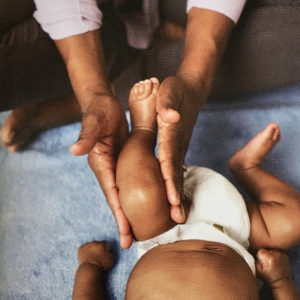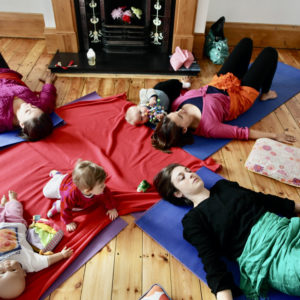Description
This course imparts Birthlight’s original baby swimming practices backed up by clear rationales. Part 1 relates to babies aged 2 months to 10-12 months (variable). The aim is to equip participants to teach parent-baby pairs (including non-swimming parents) with proficiency and confidence.
PART 1
Course contents include:
- How to empower parents to let the water support their babies: parent immersion and use of the properties of water for baby swimming
- A repertoire of 6 ‘relaxed holds’ allowing parent-baby communication and well supported gentle movements in water from a stable stance (demonstrations with dolls)
- ‘Relaxed baby floats’ progressing from ‘cradle float’ in arms to floating with hand support
- Rhythmical sequencing of mini-moves, rapid and slow, that support babies’ integration of primitive reflexes in the first year
- Use of water noodles to support parents in ‘front rides’, floating on their backs with their babies on board
- Common ‘baby cues’ through which babies communicate their readiness or resistance to specific water practices and resources to help parents respond appropriately
- Playful techniques to gradually detach babies from parents’ bodies
- ‘Mirroring practices’ to familiarise parents with babies’ sensory integration in water including joint preparation for submersion
- Fundamentals of research on how babies learn and build memories (applied to baby swimming)
- Practical resources to support different parents and babies individually and in groups
You will also learn:
- How to prepare class materials with options to change plans if needed
- How to engage parents in observations and ‘learning from their babies’




